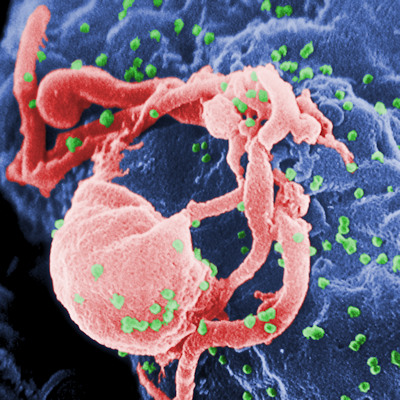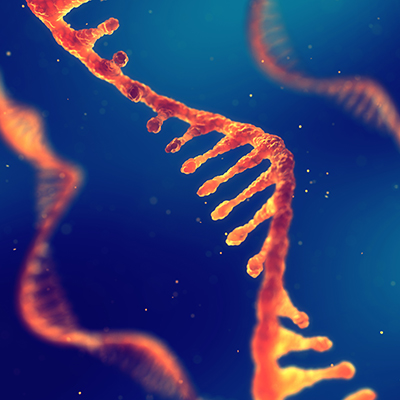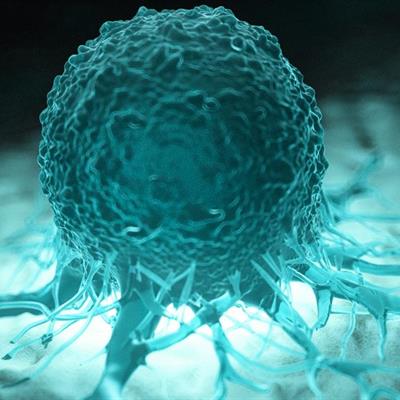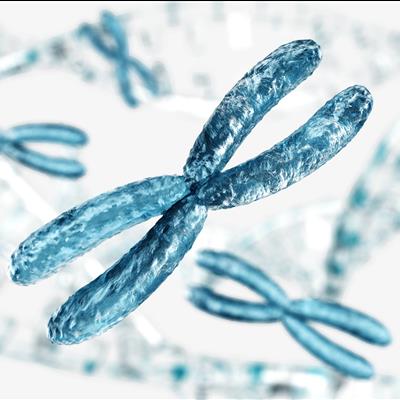 Researchers study how latent HIV evades antiretrovirals and immunity
Researchers study how latent HIV evades antiretrovirals and immunity
Duke University researchers have discovered that an immune response meant to help fight infections is the likely mechanism that drives human immunodeficiency virus (HIV) into latency, lurking in cells until it erupts anew. Read More
 New statistical method improves genomic analyses
New statistical method improves genomic analyses
A new statistical method provides an efficient way to compare biologically meaningful changes in genomic data spanning multiple conditions. The study, published November 12 in the journal Nature Communications, describes the Composite LIkelihood eMpirical Bayes method. Read More
 NCI $5.7M grant funds cancer vaccine research
NCI $5.7M grant funds cancer vaccine research
The National Cancer Institute (NCI) has awarded a five-year, $5.7 million grant to a team of Weill Cornell Medicine researchers to fund the development of mRNA vaccines to prevent cancer in high-risk populations. Read More
 New drug may help fight both COVID-19 and cancer
New drug may help fight both COVID-19 and cancer
Keck School of Medicine researchers and collaborators have discovered that GRP78, a protein implicated in both COVID-19 and various cancers, may also help fight both diseases. Read More
 Mast cells in women may explain osteoarthritis pain differences between sexes
Mast cells in women may explain osteoarthritis pain differences between sexes
Researchers from the Hospital for Special Surgery have found that an increased level of immune cells -- called mast cells -- in synovial tissue surrounding the knee joint in women may help explain why women with knee osteoarthritis report worse pain than men. Read More
 Immune conversion of cancer cells sensitizes them to immunotherapy
Immune conversion of cancer cells sensitizes them to immunotherapy
Researchers at the University of Texas MD Anderson Cancer Center have developed a nanotechnology platform that changes the immune system's perception of solid tumor cells, making them more receptive to immunotherapy. Read More
 Branched lipids efficiently deliver mRNA
Branched lipids efficiently deliver mRNA
Researchers from Japan have developed a novel branched ionizable lipid that greatly increases the efficiency of mRNA delivery to cells. Their findings may lead to the design of other novel lipids. Read More
 X chromosome turned off in male cancers too
X chromosome turned off in male cancers too
Some male cancers of diverse subtypes activate the gene responsible for shutting down gene expression of the X chromosome, Xist, and display features of X inactivation, according to researchers at the Dana-Farber Cancer Institute in Boston. Read More
 Women are more protected from renal cell death: study
Women are more protected from renal cell death: study
Women are protected from a form of cell death that occurs in injured kidneys, according to a new study from Duke Health. The mechanism could be used as a potential treatment pathway for renal repair in the future. Read More
 Nucleolin could be key to understanding neurodegenerative disorders
Nucleolin could be key to understanding neurodegenerative disorders
A new study challenges recent theories of the role structures inside the nucleus play in neurodegenerative disorders and suggests the relevance of researching Nucleolin, its function, and how it contributes to these disorders. Read More
Member Rewards
Earn points for contributing to market research. Redeem your points for merchandise, travel, or even to help your favorite charity.
Research Topics
Interact with an engaged, global community of your peers who come together to discuss their work and opportunities.
Connect
Tweets by @ScienceBoard



